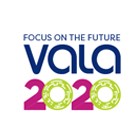Making professional development less abstract
VALA2020 CC1 TABLE 1
Wednesday 12 February 2020, 10.50-12.30
Hugh Rundle
- newCardigan
Sae Ra Germaine
- Linux Australia
Please tag your comments, tweets, and blog posts about this session: #vala2020 #cc1
Abstract
Professional development opportunities in the Australasian library and GLAM sectors hold largely the same shape they have for decades – a few large annual or biennial conferences, user-group meetings for specific tools and consortia, with the occasional one-day workshop for sector-specific needs.
Many libraries and other collecting institutions have seen their training and development budgets cut under various austerity regimes, whilst the vendor community that has been relied upon for sponsorship continues to consolidate, limiting exhibition and sponsorship opportunities. At the same time, new PD opportunities have been opened up by digital and online tools and technologies – for example over forty million people are registered with meetup.com, attending largely decentralised regular meetups and mini-conferences. What future do we want for the sector, and how should we create it?
This Critical Conversation will provide a space for Conference attendees to discuss the purpose of professional conferences and similar events and gain an understanding of the community’s needs and desires regarding future professional discussion and knowledge sharing.
Attendees will hear ideas and perspectives of other LIS and GLAM professionals both attending the conference and from the broader professional community.
This session will provide important data for a future discussion paper on the future of GLAM conferences. The session and subsequent report will be useful for GLAM professional associations and GLAM institutions in planning future conferences and/or alternative professional development events.
This work is licensed under a Creative Commons Attribution-NonCommercial License.


